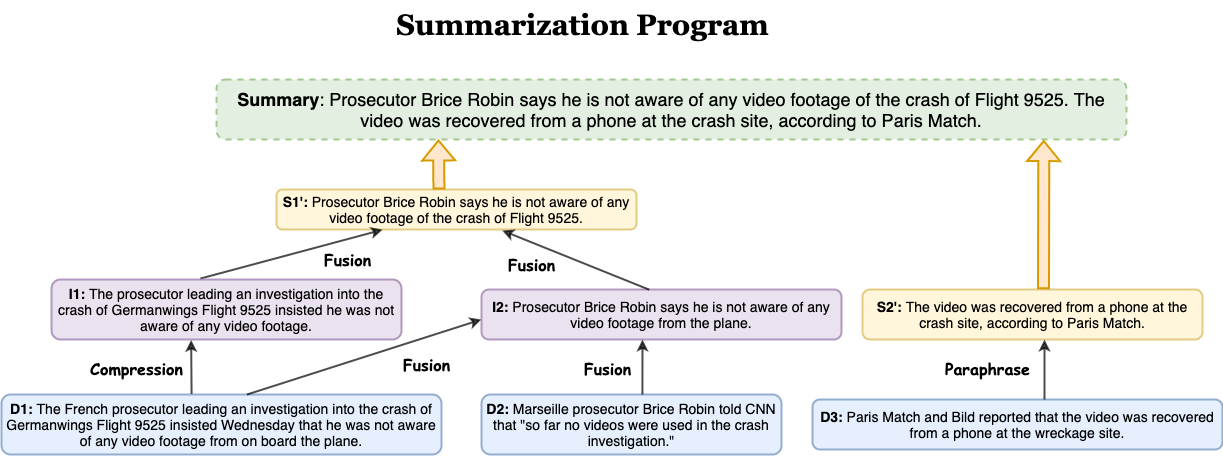Summarization Programs: Interpretable Abstractive Summarization with Neural Modular Trees
Current abstractive summarization models either suffer from a lack of clear interpretability or provide incomplete rationales by only highlighting parts of the source document. To this end, we propose the Summarization Program (SP), an interpretable modular framework consisting of an (ordered) list of binary trees, each encoding the step-by-step generative process of an abstractive summary sentence from the source document. A Summarization Program contains one root node per summary sentence, and a distinct tree connects each summary sentence (root node) to the document sentences (leaf nodes) from which it is derived, with the connecting nodes containing intermediate generated sentences. Edges represent different modular operations involved in summarization such as sentence fusion, compression, and paraphrasing. We first propose an efficient best-first search method over neural modules, SP-Search that identifies SPs for human summaries by directly optimizing for ROUGE scores. Next, using these programs as automatic supervision, we propose seq2seq models that generate Summarization Programs, which are then executed to obtain final summaries. We demonstrate that SP-Search effectively represents the generative process behind human summaries using modules that are typically faithful to their intended behavior. We also conduct a simulation study to show that Summarization Programs improve the interpretability of summarization models by allowing humans to better simulate model reasoning. Summarization Programs constitute a promising step toward interpretable and modular abstractive summarization, a complex task previously addressed primarily through blackbox end-to-end neural systems. Supporting code available at https://github.com/swarnaHub/SummarizationPrograms
PDF Abstract



 Sentence Compression
Sentence Compression